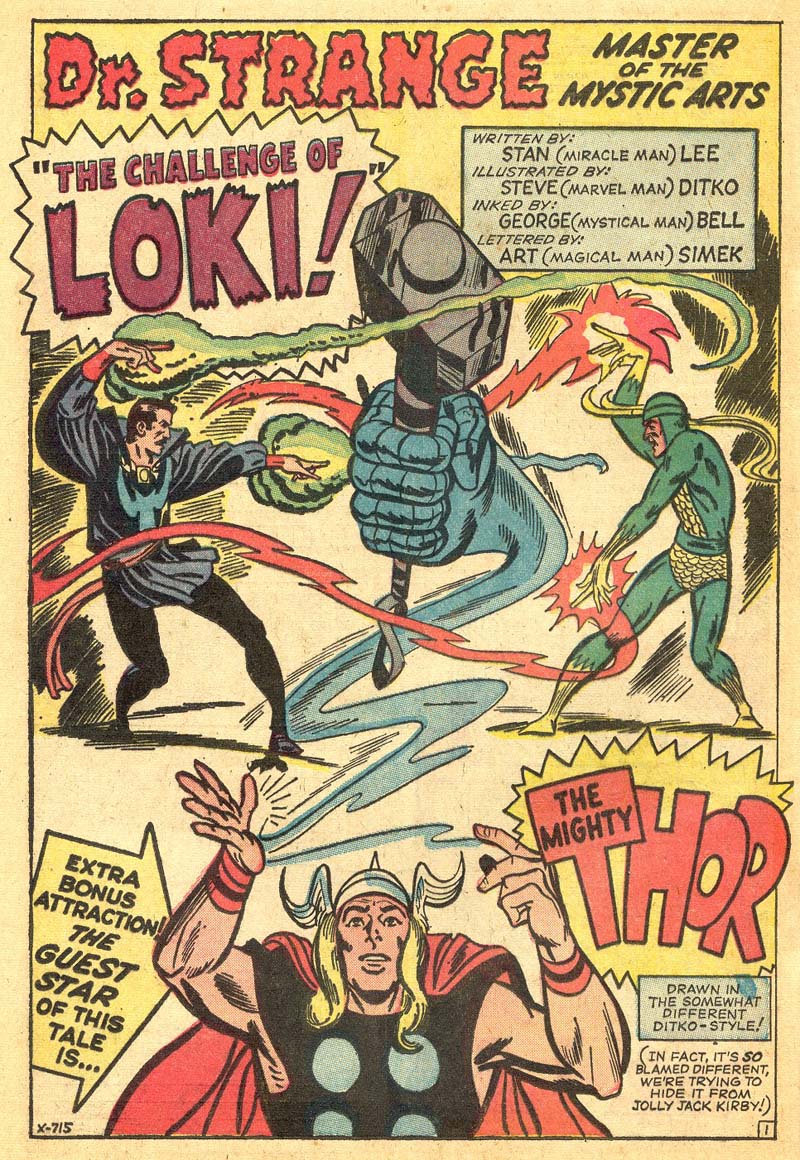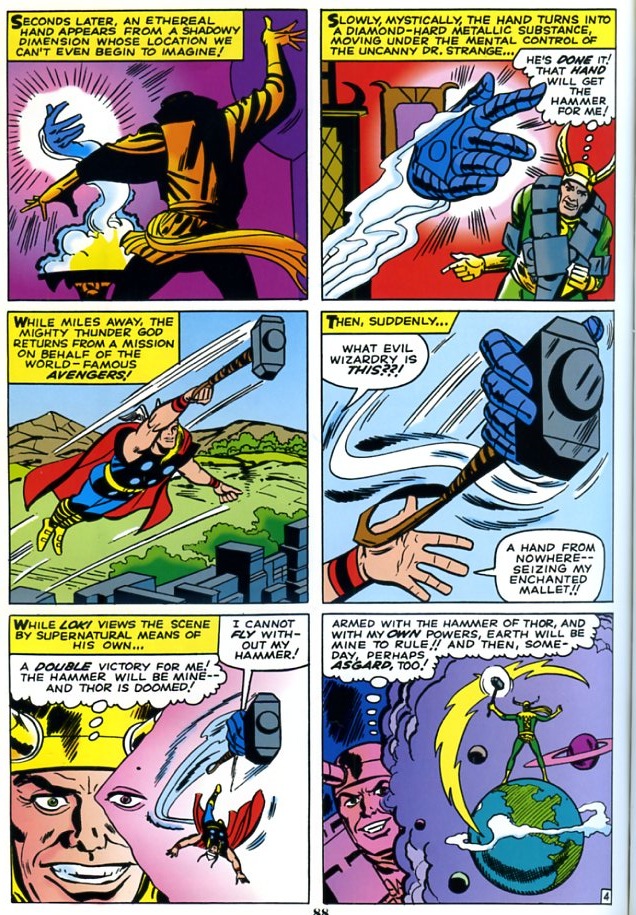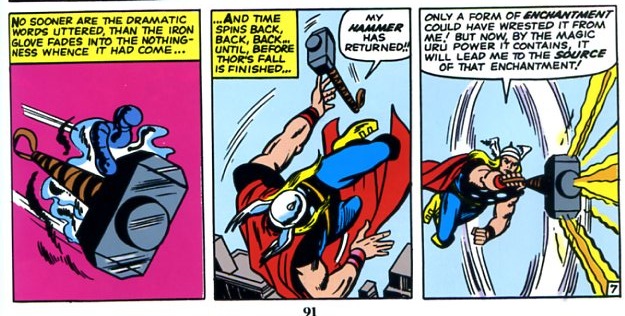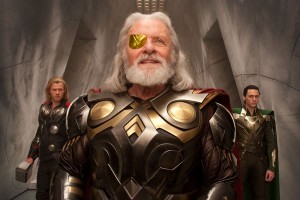I think I first read Stan Lee and Steve Ditko’s story “The Challenge of Loki” in a black and white reprint edition when I was around 8 or so. It’s originally from Strange Tales #123, August 1964.
It’s not exactly right to say that it hasn’t held up — I wasn’t necessarily all that into it even as a kid, though it does have its virtues. Chief among them is a kind of self-contained inevitability; plotting that opens and closes with a satisfying “click.” In the story, Loki decides to use Dr. Strange to destroy his old enemy, Thor. He convinces Strange to cast a spell to rob Thor of his hammer while Thor is in flight. Without the hammer, Thor starts to fall to his death. Dr. Strange realizes he’s been tricked, and he and Loki battle. Strange is losing, but manages to reverse his spell, winding time backwards and returning the hammer to Thor. His life and hammer restored, Thor sets out in search of Loki, arriving at Dr. Strange’s sanctum just in time to scare Loki off and save Strange. The end.
I guess it sounds convoluted in the telling, but, again, the thing I sort of liked about it, and still sort of like about it, is the neatness of it — the way the story so swiftly and so unapologetically sets itself in motion, and then resets, or erases itself. Loki has an evil plot; it is discovered; everything goes back to normal. It’s transparently unmotivated, and then gratuitously rubbed out — pulp piffle which revels in its own greasepaint-daubed inconsequence. The gaudiness of the lack of pretense is refreshing — though also, admittedly, a little unsettling.
That hint of wrongness, might, perhaps, be tied to some of the characteristic tensions in Ditko’s work. Specifically, Craig Fischer argues in this lovely essay, in which he connects Ditko’s obsession with eloquently gesturing hands to the anxiety and unease which pervades the artist’s oeuvre — and then (obliquely) connects both the hands and the anxieties to repressed themes of abuse.
Certainly, hands are very important in “The Challenge of Loki.” Dr. Strange steals Thor’s hammer from him by generating a giant, blue/black hand.
In part, the hand can be seen as pointing directly to Ditko himself; the elaborate motion lines an excuse to show the squiggle of the pen line — the diegetic hand as artist’s hand drawing the diegetic hand. The comic is showing you its own grinding mechanisms; it’s showing you the man (and the hand) behind the curtain.
What the man behind the curtain is doing, of course, is wreaking havoc. Thor is sadistically thrown to his death by the mystic hand — or, if you’d prefer, by the hand of the artist. There’s no motivation, other than Loki’s almost pure malevolence — which both is a plot device, and can be seen as characterizing pulp plot itself. The narrative almost figures artist as supervillain.
But then, of course, the artist relents.
It’s interesting that the hand does not return the hammer, but instead fades away. Time is wound backwards (though, again curiously, this is not really visualized). Thor’s hammer is returned to him; the supervillain artist erases his own work. Not only is recompense made, but, apparently, the evil was never done. It effervesces, like a dream — or an instantly forgettable chunk of pulp detritus. There’s almost a wistfulness there — a fantasy that those hands (my hands? whose hands?) had never been or done; that they could just vanish with a wave of (the same?) hand.
I’m sure some folks will say that it’s a stretch to read into this story trauma or guilt or a confused identification/repudiation of an abuser. And I’d actually agree with that. “The Challenge of Loki” isn’t about abuse. It’s not about anything. It’s a stupid little story about Dr. Strange fighting Loki, with Thor thrown in for cross-promotional purposes. It’s well-constructed, and mildly entertaining, and that’s all that can be said for it, really. It’s inconsequential genre product. If there was ever anything more there, it has been scoured out by some violent or gentle hand.




